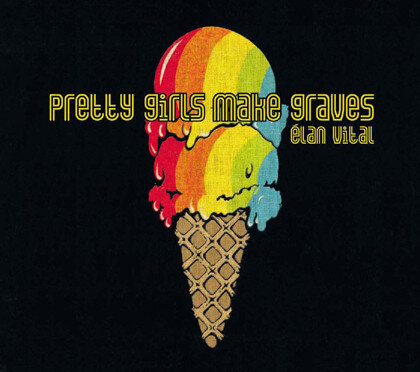“Been meeting on the front lawn, been gathering in the parking lot,” sings Andrea Zollo, giving voice to disenfranchised workers down the ages. “Been talking in the break room, of labour and unrest and eyeing the clock. Are you okay with what you’ve got?”
“Believe it or not, I actually wrote that song after I saw a play called Waiting for Lefty,” says Zollo. “A friend was in it, and I was so moved that I about stood up in my seat and yelled STRIKE!”
Clifford Odets, author of Waiting for Lefty, the play which inspired Andrea Zollo to write her song Parade.
Waiting for Lefty was the first play written by Clifford Odets, a member of Lee Strasberg’s hugely influential theatrical collective The Group Theatre, which pioneered The Method, the performance style in which an actor becomes immersed in a role, sometimes remaining in character even when not on stage.
Zollo, who now works as a hair stylist after Pretty Girls Make Graves split in 2007, wasn’t exactly a student of the period. In fact, she told me “I think it’s an old play, so you can probably read more about it online”. But she was doubtless touched as much by the dignity of the characters as by their polemic. What Odets did so well was to humanise the plight of working people by showing the fragility of their hopes and dreams as they struggled for the most basic human rights.
The short, one-act play is a story of overcoming a system of divide and rule. Written in 1935 as Franklin Roosevelt led the nation toward recovery from the Great Depression, it was the year The National Labour Relations Act guaranteed Americans the right to strike despite a political climate where “strike” was a dirty word. Industrialists, and the newspapers they owned, conspired to brand any attempt to unify the workforce as outright communism in a culture where being “red” was tantamount to high treason.
Told in a series of vignettes, inspired by the real-life New York cab drivers’ strike the previous year, the play is an indictment of an economy that bleeds working men dry to fill the pockets of a wealthy elite. Writer Clifford Odets was said to have studied the rhetoric of the strikers when he attended a meeting of the cab drivers’ union, although when pressed by the sinister House Un-American Activities Committee in the early Fifties, he denied it, claiming not to know anything about the strike.

Parade is taken from the album Élan Vital, which takes its name from a discredited evolutionary theory by French philosopher Henri Bergson
The linking thread of the different scenes in Waiting for Lefty is the plight of the New York “hacks”, a slang name for cab drivers. From the beginning, their crooked union boss tells them that everything is going be alright, despite the fact that they are barely making a living wage. He even brings in a stooge to tell them a fairy story about the deadbeat future that awaits strikers. Appealing to the drivers as their champion, he warns them that given half a chance “the reds” would turn their wives and daughters into prostitutes and throw their babies into the river. “You think that’s bunk?” he says. “Read the papers!”
Meanwhile, we see the reality at home for one of the hacks, Joe, as his wife, Edna, tells him she’ll leave with the kids if he doesn’t pull himself out from under the thumb of his employers. She convinces him that if his union is run by racketeers, he should start his own.
“I ain’t a red boy one bit!” Joe tells his fellow cabdrivers later. “Don’t tell me red! You know what we are? The black and blue boys! We been kicked around so long we’re black and blue from head to toes.”
Meanwhile, another hack, Sid, is calling off his engagement to his fiancée, Florrie, because he can never offer her the life she deserves. And yet he acknowledges that it will only take one more push to start a revolution that could change everything.
“They know if they give in just an inch, all the dogs like us will be down on them together,” says Sid, ranting at the unfairness of a world where the odds are forever stacked against the working man, “an ocean knocking them to hell and back and each singing cuckoo with stars coming from their nose and ears.”
Elsewhere, we see how the discrimination and disloyalty of employers affects white collar workers, too. A lab assistant throws away his career and punches his boss when he is asked to betray his ethics to keep his job. A brilliant young surgeon gets the sack when a hospital needs to cut costs and in spite of his talent, he is first to go because he is a Jew. “The men who know their jobs don’t run anything,” admits the hospital manager, bitterly, “except the motormen on trolley cars”.
At the end of the play, the establishment has finally pushed the workers too far. After waiting for the unseen agitator “Lefty” throughout, we learn that he is not coming – he has been silenced with a bullet to the head. And the reaction from the workers is unified at last: “Strike! Strike! Strike!”
Odets went on to write hit shows for the Broadway stage before moving to Hollywood to become a screenwriter. But the “reds under the bed” scare stifled his career – his socialist background made him a victim of America’s fear of communist infiltration. His reputation in tatters, his previously prolific output dwindled, but he continued to work sporadically and was lauded for his screenplay Sweet Smell of Success, which starred Burt Lancaster as the unscrupulous newspaper columnist JJ Hunsecker, based on real-life gossip columnist Walter Winchell.
Fellow Group Theatre alumnus Elia Kazan, who performed in Waiting for Lefty and went on to a stellar Hollywood career as Oscar-winning director of Gentleman’s Agreement and On the Waterfront, credited Waiting for Lefty with changing his life.
“None of us was ever to be the same again,” wrote Kazan in his autobiography. “And I suppose we all knew it. But we had no idea how far and how fast this change would go. Cliff was to become a god.”







